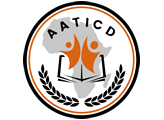Why Attend
First impressions are often made within seven seconds of a meeting and are difficult, if not impossible, to change. Among other things, this course helps you leave a great first impression. It also addresses how to deal with others in a business setting taking into account differences in culture and region. Since business is often conducted over lunch or dinner, dining skills can also impact someone’s opinion of you as a potential business partner. During the five days of this course, you will also get tips on how to apply proper manners and business etiquette in many different settings. In addition, many diplomatic ‘incidents’ occur due to the personnel’s lack of understanding of various protocol standards. Therefore, a portion of the course is dedicated to introducing the international rules of protocol that need to be implemented during formal occasions and visits.
Course Methodology
The course is designed to be interactive, participatory and includes various learning tools to enable the participants to operate effectively and efficiently in a multifunctional environment. The course is built on four learning pillars: concept learning (lectures and presentations), role-playing (group exercises), experience sharing (roundtable discussions) and exposure to real-world problems and policy choices confronting delegates.
Course Objectives
By the end of the course, participants will be able to:
- Explain how to behave correctly in both business and social situations
- Describe how to interact and communicate effectively with different types of guests
- Demonstrate appropriate personal and professional conduct
- Plan VIP visits and formal occasions while executing the role of the ideal host
- Apply proper communication etiquette
- Implement different variations in protocol and etiquette from different cultures, nations, and regions
Target Audience
Personnel officers, public relations professionals, events organizers, personal assistants, employees in the hospitality business and all those whose position requires dealing and interacting with important persons in both government and private sectors.
Target Competencies
- Public speaking
- Verbal and non-verbal communication
- Influencing
- Presentation delivery
- Active listening
- Building rapport
Location:
South AfricaTraining Dates:
Each course starts every Monday of each week. Please book your training on a date that is a Monday.Course Duration:
Unit Standard:
NQF Level:
Number of Credits:
Course Fees
Note: Please fill in the online application form on the left or bottom if this page to receive a quotation with detailed pricing from AATICD.How to Apply:
To Apply Simply Fill in the Online Enquiries / Applications form on the Right Sidebar or Bottom of this website https://www.aaticd.co.zaNB:
When filling the online application form; please take note of your desired Training Month, Duration in Weeks and Training Session. This will give us the exact dates you will be attending your classes.Also note that Tuition Fees must be paid upfront on or before training start date. This is to ensure that all resources are made availabe for you before you start. You will not be allowed into training if fees are not paid and verified.
Also note that Tuition Fees Cancellations must be made 14 business working days before the starting date of training. This will allow us to do a 50% refund of the total amount paid. If cancellations are made thereafter note that no refund will be made to delegates.
Tuition Fees include teas and lunch as well as either a laptop or tablet which a delegate will take home free of charge.
Tuition Fee DOES NOT include Accommodation, Dinners and other Extra Curricular Activities or Incidentals. Delegates are expected to fund this on their own. AATICD will not be held accountable for any incidents to delegates.
In-House Trainings are also available for 3 or more delegates for any duration. Please consult with our Administration for such In-House training bookings.
Course Outline
- Principles of business etiquette and protocol
- Definitions and concepts
- Guiding principle
- Importance of etiquette in business
- Importance of protocol in business
- The importance of manners
- Creating the right corporate image
- Six basic principles
- Achieving communication success
- Communication levels and definitions
- The four principles of communication
- Elements of the communication process
- Communication delivery aspects
- Barriers to effective communication
- Overcoming communication barriers
- Communicating across cultures
- Managing perceptions and biases
- Communication key qualities
- Listening etiquette
- Personal and professional conduct
- Universal expectations for behavior
- Etiquette for formal occasions
- Handling difficult personalities
- Four choices for dealing with various behaviors
- International business etiquette
- Customs and cultures
- Best practices
- Planning and hosting VIP occasions
- Preparation for official visits
- Protocol at events and summits
- Key qualities of the ideal host
- Seating strategies
- Risk and contingency planning
- Mistakes to avoid
- Meeting at airports
- Proper communication etiquette
- Phone etiquette
- Meeting etiquette
- Email etiquette
- Titles and forms of address
- Exchanging gifts
- Variations in protocol and etiquette
- Administrative protocol
- Flags, anthems, and logos
- Awkward situations and solutions
- Panoramic view of variations




